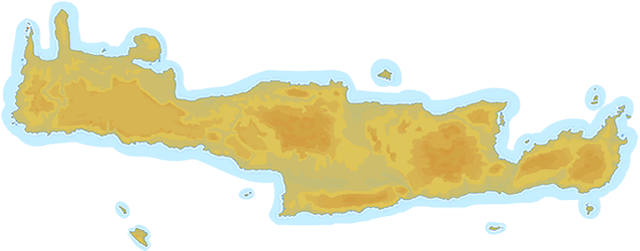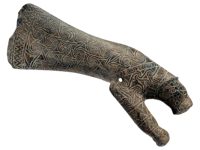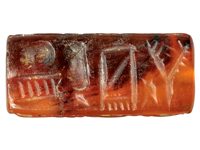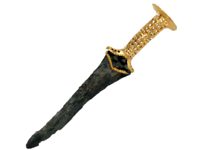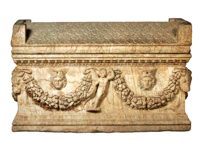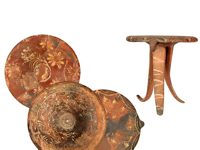interkriti®
YOUR GATEWAY TO CRETE
Crete Image Library
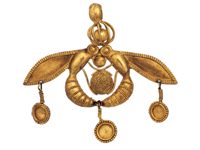
Gold bee pendant, from Malia
The famous gold jewel with the bees. Consists of two bees holding a piece of honeycomb between their lehs, a filigree `cage` containing a gold bead balanced on their heads and little dosks hanging down from their wing and sting. An exquisite example of Minoan goldwork, it combines hamering, filigree and granulation. From the necropolis of Malia (1800 - 1700 B.C.) - Heraklion Museum.
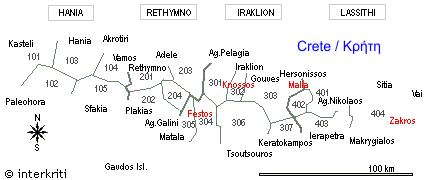 |
|
|
